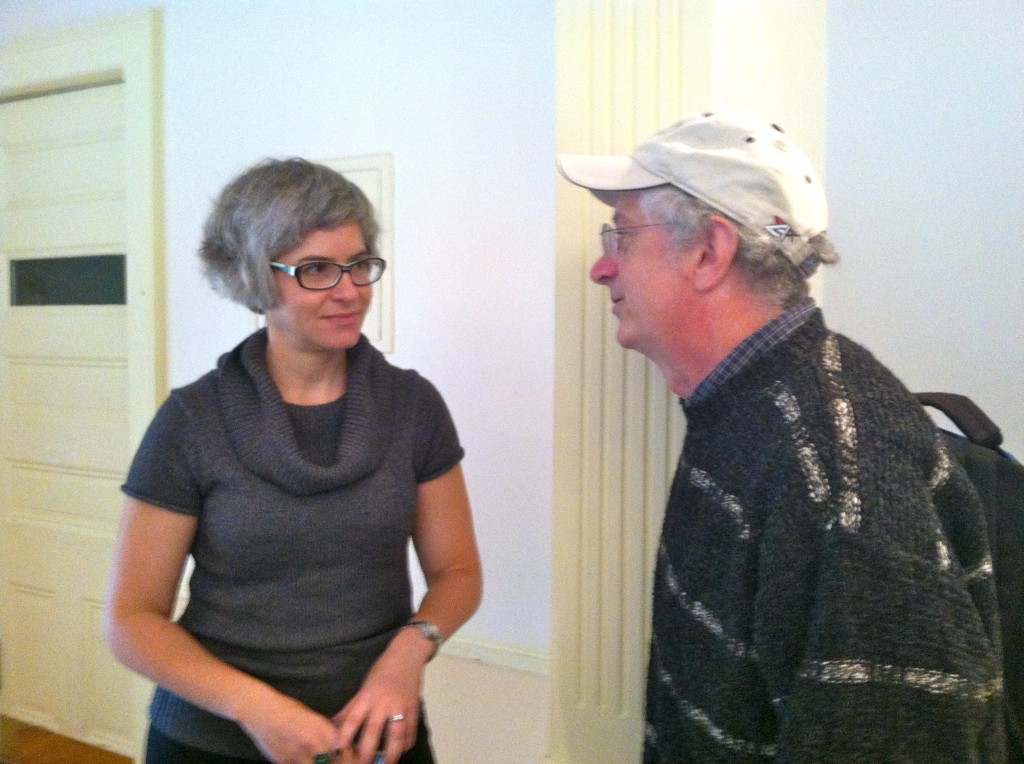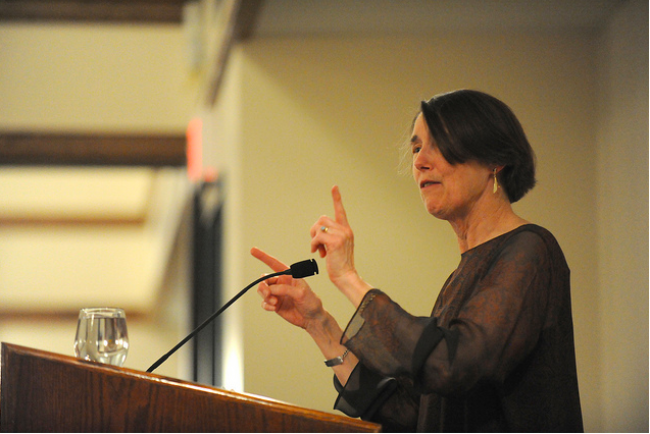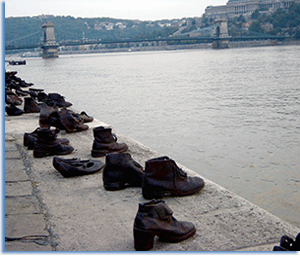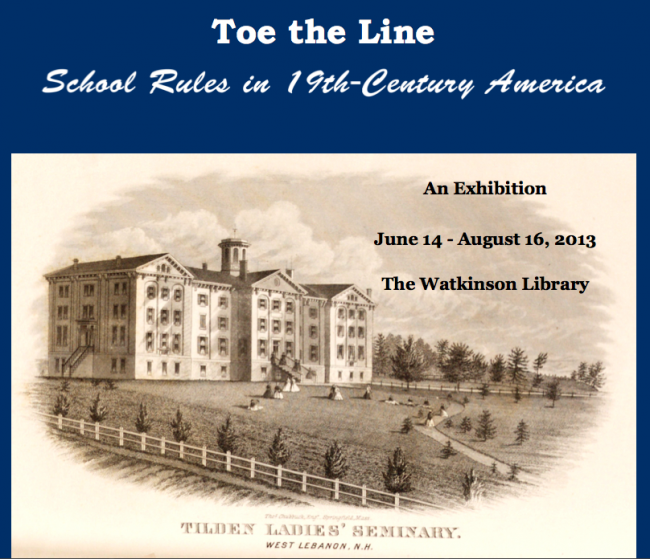Home » American History (Page 3)
Category Archives: American History
Celebrating the life of Jack Chatfield

“Hartford, Conn. — After a long and spirited battle with prostate cancer and Parkinson’s disease, Jack died peacefully at home on Sept. 18, 2014 surrounded by a continuing stream of family and friends, comforted by the music and companionship he so adored. He never complained about his fate. His strong will to live, sense of humor, and generosity of spirit gave him incredible strength throughout his final journey.
Jack was born in Baltimore, Md. on July 20,1942, son of Dr. Paul Oakes Chatfield and Helen Taylor Chatfield. He graduated from Randolph Macon Academy in Front Royal, Va. in 1960 and from Trinity College in 1964. It was during his freshman year that his attention became riveted on the growing black student movement in the South. He became increasingly absorbed through news reports, speakers, and conversations with fellow students and when he learned that Trinity friend Ralph Allen had joined the movement and was badly beaten in Dawson, Ga., he left immediately for southwest Georgia. On his first night in Dawson he was injured by shotgun blasts fired by night riders into the house where he was staying. Jack’s involvement in the civil rights movement was passionate, inspirational, and lifelong.
Jack received his M.A. and PhD from Columbia University. From 1970-1978 he taught at the Watkinson School in West Hartford, Conn. In 1987 he began his teaching career at Trinity College which spanned 25 years until his retirement in 2012. Highlights at Trinity include the Hughes Award for Teaching Achievement in 1992, The Brownell Prize for Teaching Excellence in 2002 and organization of the SNCC conference – “We Shall Not Be Moved – The Life and Times of the Student Nonviolent Coordinating Committee” in 1988, the first major reunion of SNCC members since the group disbanded in the 1960’s.
Jack leaves his wife of 45 years, Barbara; son, Jonathan of West Hartford; daughter and son in law Julia and Nir Levy of West Granby; grandchildren Zoe and Anya Chatfield and Mason Levy; his sister Lora from Bradford, VT who has been present for weeks providing priceless nursing and moral support; brother in law Alan Schneider in San Francisco Calif. and several nieces, nephews and cousins. Special thanks to VNA HealthCare and Jack’s wonderful hospice team.
Jack’s body will be donated for research and his ashes buried at Trinity. There will be a Celebration of Jack’s life at Trinity in the next few weeks. In lieu of flowers donations may be made to Watkinson School or the Professor John H. Chatfield ’64 Scholarship Fund at Trinity College.”
Source: http://www.vnews.com/home/13640613-95/john-jack-h-chatfield
Lecture: Education and Civil Rights in the 21st Century
On Tuesday, Sept. 23rd, Trinity College’s Office of Multicultural Affairs and La Voz Latina hosted Pedro Noguera, the Peter L. Agnew Professor of Education at New York University, who in honor of Hispanic Heritage Month spoke on Education and Civil Rights in the 21st Century. This event, which is co-sponsored by the History, Educational Studies, Political Science, Sociology, American Studies and International Studies departments.
Here are some reflections from first year students who attended this eye-opening talk:
“Professor Noguera highlighted and brought to my attention many key points and issues pertaining to our education system that I myself have struggled through in my experience as a student in the American system. There key generalized revisions in the professor suggested that our leaders and lawmakers make, but also specific advice for teachers and principals at the local level. Perhaps the most important point in the entire conversation, however, was that education for everyone benefits us all in greater ways than education solely for a privileged few” — Theo Pesiridis, Class of 2018
“Before hearing Professor Noguera talk, I had imagined him speaking in regards to the “wrong” about education and the ruthless results in education. In a way, I imagined him talking about that failures in the education system, but in actuality, Noguera mentioned successes throughout the country…In the end, he challenged the audience into going out into the community and being that small token of difference. He stated in his closing arguments: “It’s all about will”. This shows us that if we want the change in the education system, we must be willing to make the transformation.” — Giselle Galan, Class 2018
“Racial segregation does exist in the United States of America and can’t be ignored.” — Abdi Noor, Class of 2018
“While the civil rights movement is no longer the proprietor of headline news come the 21st century, education has taken over as the civil rights issue of our time…Professor Noguera, who has been studying how to improve schools for many years, pointed out how, for many of the school systems that were failing, there were schools populated by mostly white students, which received far more funding. This idea of providing schools that are the most well off with further funds is not only backwards, but is the driving the problem farther from its solution.” — Jonah Meltzer, Class 2018
Lecture: Looking for War in the Landscape

On October 23, Trinity welcomed Megan Kate Nelson, a cultural and environmental historian with two published books who currently teaches at Brown University. She led a discussion entitled “Looking for War in the Landscape/Looking for Landscapes in the War” in which she analyzed the Civil War’s impact on the land of the United States and vice versa.
Nelson conducted extensive research in Virginia guided by a fascinating question: how can we access the experiences of the Civil War? The answer, she concluded, lies right beneath our feet: the land. In her research, Nelson studied “earthworks” and other physical remains of war. Some of these lay unnoticed on the outskirts of suburbs and others were formally preserved, and still others are missing. She found that the experience evoked by these earthworks was a reflection of their location and the landscape itself.
Nelson’s current research involves a narrative history of the Civil War in the Southwest, where the diverse eco-regions of New Mexico were the site of biological warfare. Whether concerning natural or built landscapes, Nelson’s insight into the diverse connections between land and warfare is compelling for historians and non-historians alike.
Toe the Line Exhibition at the Watkinson Library
Title of Exhibit: Toe the Line School Rules in 19th-Century America
Description: School catalogs and reports drawn from the professional library of educational reformer Henry Barnard. “Henry Barnard was born on January 24, 1811, in Hartford, Connecticut. From 1837 to 1839, he belonged to the Connecticut state legislature. In 1838, he founded the Connecticut Common School journal. In 1845, he became Rhode Island commissioner of public schools. He was hired as the U.S. first commissioner of education in 1867 and resigned in 1870. Barnard died on July 5, 1900, in Hartford, Connecticut.”
Dates: June 14-August 16, 2013
Class of 2013 History Prizes at 63rd Annual Honors Day

“HARTFORD, CT, May 3, 2013 – The Trinity College Chapel served as the site Friday, May 3 for the school’s 63rd annual Honors Day Ceremony in which more than 200 students were cited for their scholarly, athletic and community-oriented achievements. Some students were recognized more than once. The honorees, which included members of the Classes of 2013, ’14, ’15 and ’16, were presented with a broad array of prizes and awards for their contributions and accomplishments over the years. The ceremony originated when George Keith Funston, who served as Trinity College President from 1945 to 1951, sought to re-establish the school’s academic pageantry, which had been halted during World War II. Matriculation and the Book Ceremony for first-year students were restored, and in the spring of 1950, Honors Day was added as a new event. It was intended to be an occasion when all Trinity prizes and awards — with the exception of those handed out at Commencement – could be celebrated in the presence of the entire College community.” (source: http://www.trincoll.edu/NewsEvents/NewsArticles/pages/HonorsDay2013.aspx)
Congratulations to all of the following the history majors awarded prizes:
(more…)
The Frailty of Historical Truth: Learning Why Historians Inevitably Err
 By David Lowenthal “How tiresome are the endless anecdotes about [William Best] Hesseltine, his seminar, and his students,” wrote Wisconsin editor Paul Hass.1 Yet the unsung historiographical lessons that seminar imparted to me and others richly merit recording. By scanning our mentors’ publications in skeptical depth, students learned that hidden bias always skews evidence, that secondary sources are ipso facto unreliable, and that myriad minor errors betoken major sins. Still more, they learned that even paragons do not have enough time, patience, or probity to prevent all such lapses and avoid their egregious epistemic consequences. Historians ever stumble on feet of clay. How tiresome are the endless anecdotes about [William Best] Hesseltine, his seminar, and his students,” wrote Wisconsin editor Paul Hass.1 Yet the unsung historiographical lessons that seminar imparted to me and others richly merit recording. By scanning our mentors’ publications in skeptical depth, students learned that hidden bias always skews evidence, that secondary sources are ipso facto unreliable, and that myriad minor errors betoken major sins. Still more, they learned that even paragons do not have enough time, patience, or probity to prevent all such lapses and avoid their egregious epistemic consequences. Historians ever stumble on feet of clay. At the University of Wisconsin from 1932 until his death in 1963, Hesseltine was a renowned chronicler of the Civil War and its aftermath, whose “commandments” on historical writing are still often cited. His anathemas forbade the passive voice, the present tense, designating persons by their last names only, and quoting from secondary sources. He inveighed against the rising tide of pompous impedimenta: “do not discuss thy methodology”; “write about thy subject and not about the documents concerning thy subject”; “fight all thy battles in the footnotes.” And––pertinent in today’s Wiedergutmachung spate of apology, tempting historians to turn moralist—”thou shalt not pass judgments on mankind in general nor … pardon anyone for anything.” 2 A retrospective celebrant prized Hesseltine’s “strange blend of pacifism, anarchism, Menckenism, Calvinism, and sheer naked perversity.”3”
By David Lowenthal “How tiresome are the endless anecdotes about [William Best] Hesseltine, his seminar, and his students,” wrote Wisconsin editor Paul Hass.1 Yet the unsung historiographical lessons that seminar imparted to me and others richly merit recording. By scanning our mentors’ publications in skeptical depth, students learned that hidden bias always skews evidence, that secondary sources are ipso facto unreliable, and that myriad minor errors betoken major sins. Still more, they learned that even paragons do not have enough time, patience, or probity to prevent all such lapses and avoid their egregious epistemic consequences. Historians ever stumble on feet of clay. How tiresome are the endless anecdotes about [William Best] Hesseltine, his seminar, and his students,” wrote Wisconsin editor Paul Hass.1 Yet the unsung historiographical lessons that seminar imparted to me and others richly merit recording. By scanning our mentors’ publications in skeptical depth, students learned that hidden bias always skews evidence, that secondary sources are ipso facto unreliable, and that myriad minor errors betoken major sins. Still more, they learned that even paragons do not have enough time, patience, or probity to prevent all such lapses and avoid their egregious epistemic consequences. Historians ever stumble on feet of clay. At the University of Wisconsin from 1932 until his death in 1963, Hesseltine was a renowned chronicler of the Civil War and its aftermath, whose “commandments” on historical writing are still often cited. His anathemas forbade the passive voice, the present tense, designating persons by their last names only, and quoting from secondary sources. He inveighed against the rising tide of pompous impedimenta: “do not discuss thy methodology”; “write about thy subject and not about the documents concerning thy subject”; “fight all thy battles in the footnotes.” And––pertinent in today’s Wiedergutmachung spate of apology, tempting historians to turn moralist—”thou shalt not pass judgments on mankind in general nor … pardon anyone for anything.” 2 A retrospective celebrant prized Hesseltine’s “strange blend of pacifism, anarchism, Menckenism, Calvinism, and sheer naked perversity.”3”
[From The Art of History column in the March 2013 issue of Perspectives on History]
At Trinity and around the world: Pulitzer Winner Joan Hedrick
 By Serena Elavia ’14 for The Trinity Tripod
By Serena Elavia ’14 for The Trinity Tripod
“Not every university can boast about having a Pulitzer Prize winning author, but Trinity can. Over winter vacation, the Charles A. Dana Professor of History Joan Hedrick was featured in a three part PBS special called “The Abolitionists.” The special was a docudrama, meaning that it was part documentary and part historical reenactment. Given that Hedrick wrote a Pulitzer Prize winning biography of Stowe, she is a go to source of information on Stowe and was chosen for the PBS special and Hedrick happily accepted the offer. “Stowe was so influential in the debate on slavery and to be represented in a series on abolition was important for me to do,” says Hedrick on why she accepted the offer to be interviewed in the series. Hedrick’s interviews were featured in the second episode, which focused on Stowe, of the three part series. Hedrick describes the process of filming as “very good.” The director, producer and writer of the series Rob Rapley was an “excellent interviewer” according to Hedrick. She says that it was helpful to work with someone very skilled and low key and that the overall interviewing process went well. Before the special aired on Tuesday Jan. 8, the Harriet Beecher Stowe Center in Hartford, Conn. held a panel discussion featuring Hedrick and other professors at Connecticut universities. Many do not know that Stowe spent her retirement in Hartford. The Center has converted Stowe’s home into a museum that offers educational programs and has a library that includes many letters that Stowe wrote to her husband Calvin Ellis Stowe.”
History Students Go On Bird Viewing Cruise

Professor Wickman took his History 300 class on an eagle cruise on the Connecticut River. Since his history workshop theme is, “History from Above: Birds and People in the New World, 1492-1962,” biology professor Scott Smedley invited his class to join his “Winter Ecology” class on the bird viewing cruise. The boat went south from Haddam, CT, and gave them a chance to see bald eagles, red-tailed hawks, cormorants, mergansers, Canada geese, gulls, and many other birds. Hopefully the experience provided inspiration as the students craft research projects related to changing human relationships with birds!
Reflections: “Tragedy, Memory, History”

James Grossman, executive director of the American Historical Association, recently wrote a piece musing on what he called “the vexed relationship between history and memory.” In a visit to Hungary he realized that all the museums and monuments he visited focused on victims rather than perpetrators and began thinking about “the implications of a politics of nationhood that relies on victimization as its central theme.” As he notes, it allows Hungarians to avoid any responsibility for what was done, from participation in the killing of Jews during WWII to collaboration with the Soviets I oppressing their countrymen during the Cold War. He then considers how Americans depict our own history – are we focusing on victimization too, thus avoiding responsibility for evil actions of our past – Prof. Cheryl Greenberg (History Dept.)
(more…)
Meet Team Thesis AY2012/13
 By: Daniel Morgan (History major, Class of 2013)
By: Daniel Morgan (History major, Class of 2013)
Is there anything more quintessential to the education of young historians than the thesis exercise? Writing a two semester thesis has long been a staple of the liberal arts curriculum, and rightly so. Through this labor of love, a history major puts all of his or her skills to the test (from critical and analytical reading to the development of a cogent and articulate argument) and ultimately produces a work which adds to the collective body of Trinity scholarship. The History Department thesis writers for the class of 2013 are (alphabetical by last name): Kyle Loder, Kathleen McKenna, Francis Russo, and Emma Sternloff. This writer is also a thesis writer for the 2013 year – however, I would like to step back after this brief introduction, and let my colleagues speak for themselves. I have asked each of this year’s thesis writers to comment briefly on writing a history thesis, as well as their opinions on history scholarship in general.
(more…)

